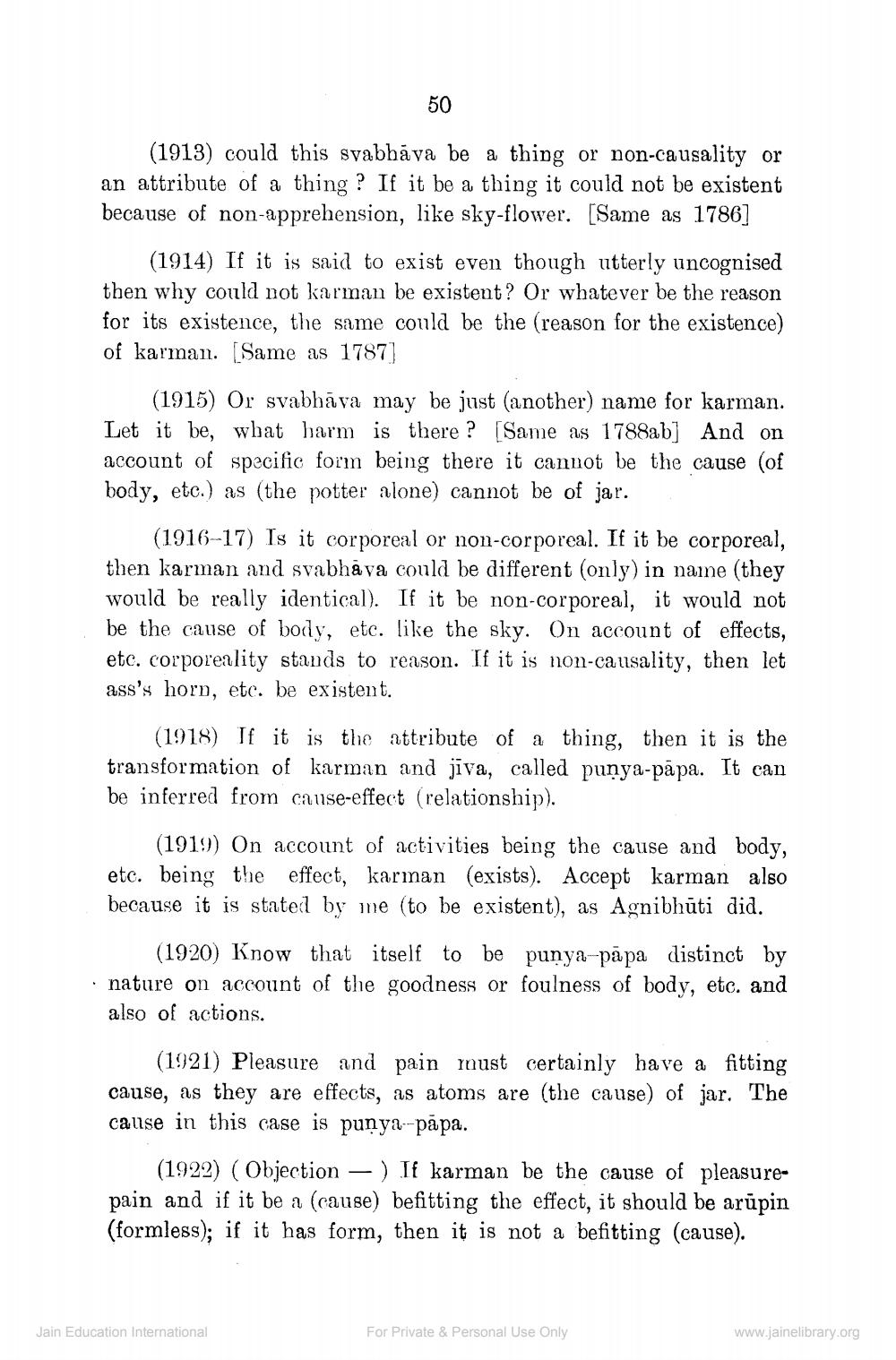________________
50
(1913) could this syabhāva be a thing or non-causality or an attribute of a thing ? If it be a thing it could not be existent because of non-apprehension, like sky-flower. [Same as 1786]
(1914) If it is said to exist even though utterly uncognised then why could not karman be existent? Or whatever be the reason for its existence, the same could be the (reason for the existence) of karman. [Same as 1787]
(1915) Or svabhāva may be just another) name for karman. Let it be, what harm is there? [Same as 1788ab] And on account of specific form being there it cannot be the cause (of body, etc.) as (the potter alone) cannot be of jar.
(1916-17) Is it corporeal or non-corporeal. If it be corporeal, then karman and svabhava could be different (only) in name (they would be really identical). If it be non-corporeal, it would not be the cause of body, etc. like the sky. On account of effects, etc. corporeality stands to reason. If it is non-causality, then let ass's horn, etc. be existent.
(1918) Jf it is the attribute of a thing, then it is the transformation of karman and jiva, called punya-papa. It can be inferred from cause-effect (relationship).
(1919) On account of activities being the cause and body, etc. being the effect, karman (exists). Accept karman also because it is stated by me (to be existent), as Agnibhūti did.
(1920) Know that itself to be punya-pāpa distinct by · nature on account of the goodness or foulness of body, etc. and also of actions.
(1921) Pleasure and pain must certainly have a fitting cause, as they are effects, as atoms are (the cause) of jar. The cause in this case is punya-papa.
(1922) (Objection — ) If karman be the cause of pleasurepain and if it be a (cause) befitting the effect, it should be arūpin (formless); if it has form, then it is not a befitting (cause).
Jain Education International
For Private & Personal Use Only
www.jainelibrary.org




